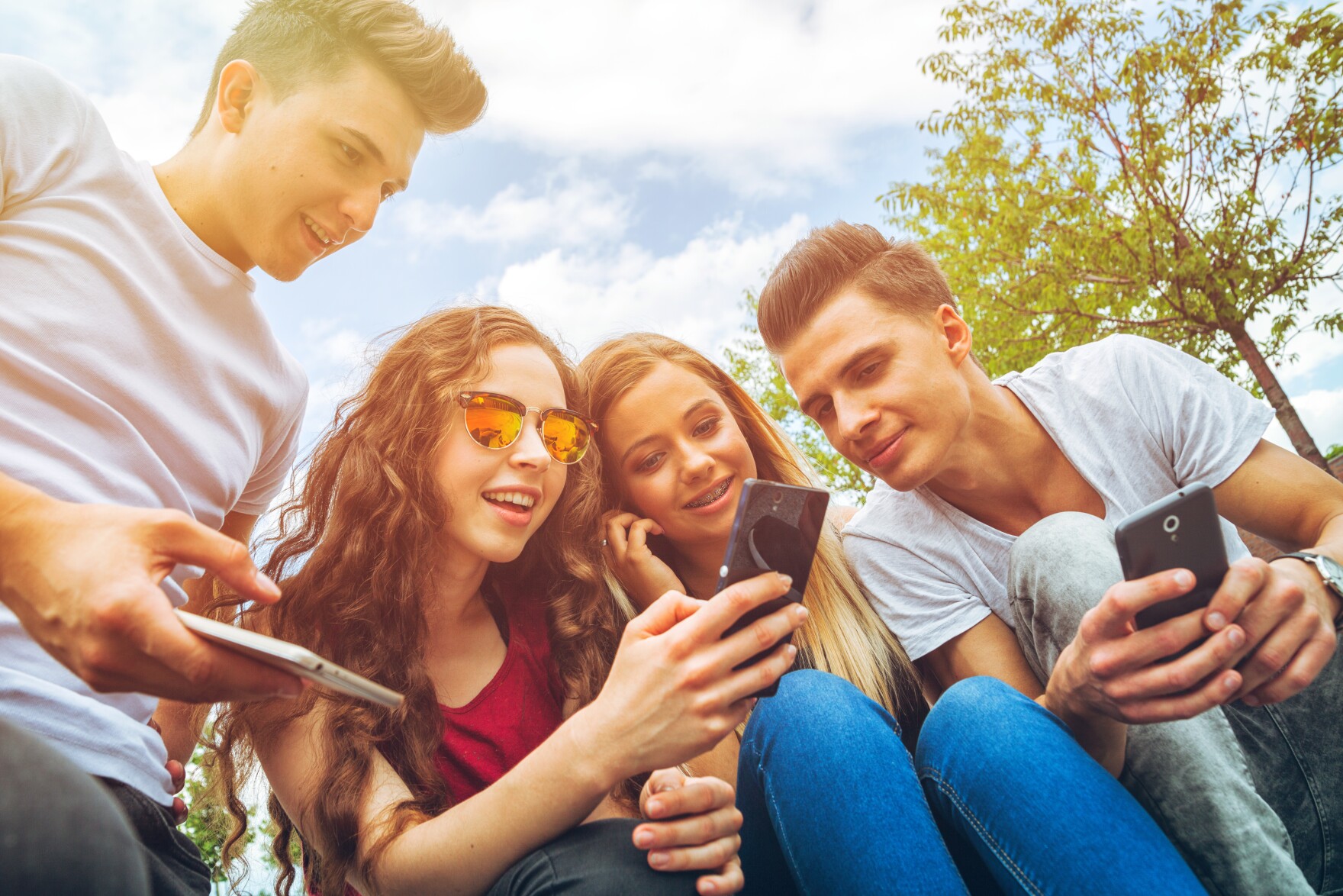**This story is part of a youth reporting project between the Fayette Institute of Technology and West Virginia Public Broadcasting. It was written by high school seniors Chloe Perdue and Keesha Moore with support from health reporter Kara Lofton.**
In today’s technology-centric society, smartphone use, especially among American teenagers, is ubiquitous.
Although experts caution limiting how much time teens are spending on social media, and instead encourage people to socialize in person, the draw to and obsession with social media doesn’t look like it’s going to go away any time soon.
A 2014 study published in the Personality and Social Psychology Bulletin suggests that social media is helping kids feel less lonely. But near-constant phone use can also border on addiction: some teenagers say they feel pressured to get likes on their posts or are drawn to pick up their phone every second.
“I’m on it unless I’m sleeping, or unless I’m doing some kind of work, or eating and sometimes I’m on it when I’m eating as well,” said Lillian McMillion, a senior at Midland Trail High School in [add location here]. “So, like 23, 22 hours a day. Maybe 20,”
A 2016 study from the Pew Research Center found that half of teenage girls and 39 percent of teenage boys are “near-constant online users.”
Social media is an easy source of communication, said Hamlet Smith a psychotherapist in Beckley, West Virginia. He said because of that it can be easy for people to take advantage of others in negative ways.
“You know, just gossiping about somebody, the ability to injure people emotionally, technology just improves that,” he said.
In 2018, 59 percent of American teens reported some form of cyberbullying or internet harassment. Students interviewed for this story said for them, the comparison game is the biggest issue.
Fear of Missing Out
Midland Trail High School senior Erin Crosier said that scrolling through social media can make her anxious — like everyone’s living a better life. She said as an introvert, it can be hard to see her friends posting about the fun things they’re doing.
“I sit in my house and I’m like, ‘Man, I don’t have that,’ and it’s pretty depressing and it makes me anxious that I’m not living that too, I think,” she said.
Crosier said when she does get positive reinforcement on social media, getting a lot of “likes” for example, it also influences her mood.
“When I get tons of likes, I feel great about myself,” she said. “When I don’t, I sort of use that as a way to, for acceptance almost, you know?”
She said she feels like a lot of people her age feel the same way.
“But within a day or two I mean, it’s temporary,” she adds.
A2012 study from Harvard University, suggests that when sharing personal information through mediums like social media, causes dopamine levels to rise. Dopamine is commonly known as the “feel good” hormones. Other research suggests that getting “likes” on social media gives a boost of dopamine — which the students say is true for them.
For McMillion, the number of “likes” she receives on a post can directly influence her self-worth.
“Mostly, if I don’t get like over 100 likes on something, or at least 150, then I delete it,” she said. “The most I’ve gotten is like 400, so I try to keep it like up there, 200, 300 likes. But if it doesn’t, then I delete it because I don’t think I look good enough.”
Community Building
Studies from the Pew Research Center found that nearly two-thirds of teenagers report that they make new friends through social media, and 90 percent use social media to connect with existing offline friends every day.
Smith, the psychotherapist from Beckley, said social media if used well it can build community.
“So, if you are in a closed group with a group of people who really are intent on supporting each other, it can be a wonderful thing,” he said.
He cautioned social networks can also also be more of a “mixed bag” depending on the community one is interacting with.
“The problem with social media is not just what your intentions are, it’s what the intentions of your network in social media, too,” he said.
Appalachia Health News is a project of West Virginia Public Broadcasting, with support from the Marshall Health and Charleston Area Medical Center.





















